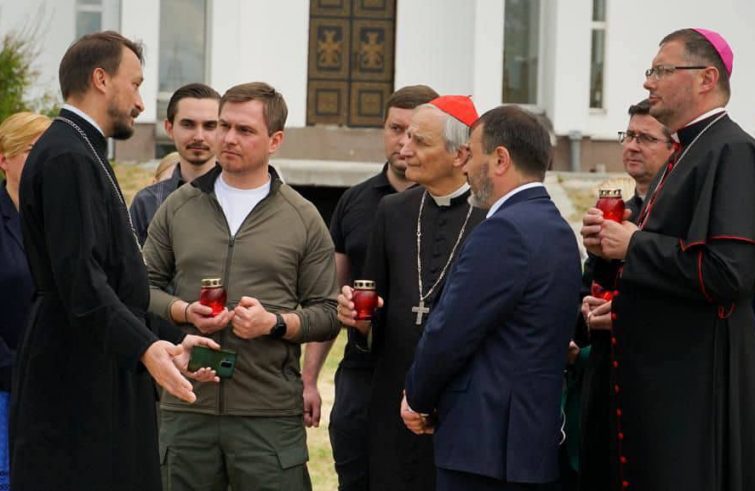
“I don’t know if and when Card. Zuppi will visit Moscow, but this incident somehow simplifies the Holy See’s mission in terms of motivation, because the Russians are now extremely isolated, even from an ecclesiastical angle, and Rome, the Pope, is their only remaining friend.” Fr Stefano Caprio, a missionary priest in Russia from 1989 to 2002, professor of Russian history and culture at the Pontifical Oriental Institute in Rome (POI), contacted by SIR, commented on the possible repercussions of the failed coup of Saturday June 24 on the second leg of Card. Matteo Zuppi’s peace mission – after the one in Ukraine – in Moscow on behalf of the Holy Father. “Clearly,” the expert remarked, “travelling to Moscow to promote peace with Ukraine makes no sense now. If anything, the purpose of the trip should be to promote peace among the Russians themselves. In this respect, Russia’s internal divisions and weaknesses paradoxically make Zuppi’s mission easier, because his job is not to broker peace talks – those are political and military matters. By listening, he must foster a spirit of peacemaking both inside and outside the country. It is a deeper and more universal message.”
The Holy See is now virtually the only interlocutor. “At an ecclesiastical level – the priest points out – the Russians have broken all ties with Constantinople and all the other Orthodox Churches, even the closest ones, either don’t speak out in favour of Moscow or have clearly expressed their opposition. They therefore no longer even enjoy this moral support on a religious, spiritual, universal level.
“In the eyes of the world they are seen as a rogue country, a rogue Church, which has spoiled the religious renaissance of the past 30 years. Therefore, if the Holy See assumes the responsibility to pursue a dialogue with them, this is tantamount to an act of charity towards them.”
In short, “the Russians cannot afford to do without a dialogue with Rome”, and the Holy See can bring an important message to Russia at this particular moment in history, which is that of “recovering the true soul of Russia, the soul of its Orthodox religion, of its culture, of its universal tradition, experienced, however, not in conflict with the world, but as a message of global unity and understanding.”
Father Caprio noted that a “weakened Putin” implies “a weakened Patriarch”. While the office of Patriarch is for life, Kirill may be suffering the consequences of having “exaggerated his rhetoric” over the past year. “His figure was recently tarnished by the story of Rublev’s icon of the Holy Trinity”, which was “forcibly transferred from the museum to the church.” “This decision”, says Caprio, “caused widespread unease among believers, not only because the artefact could be damaged, but also because a work of art clearly cannot be treated in this way just for the sake of propaganda. The excommunication of a number of priests who had spoken out in favour of peace has also sparked controversy. “Even the Patriarch is aware that the situation is getting out of hand,” said Father Caprio. Finally, the Italian missionary says he has spoken to several people in Moscow and elsewhere in Russia in recent days. “Most people in Russia are trying to distance themselves as much as possible from what is happening. It is clear to many that any conversation, even between friends in a café, even in a very private context, could have consequences. People are even afraid to speak out in their own homes. It is a very stressful situation.”









